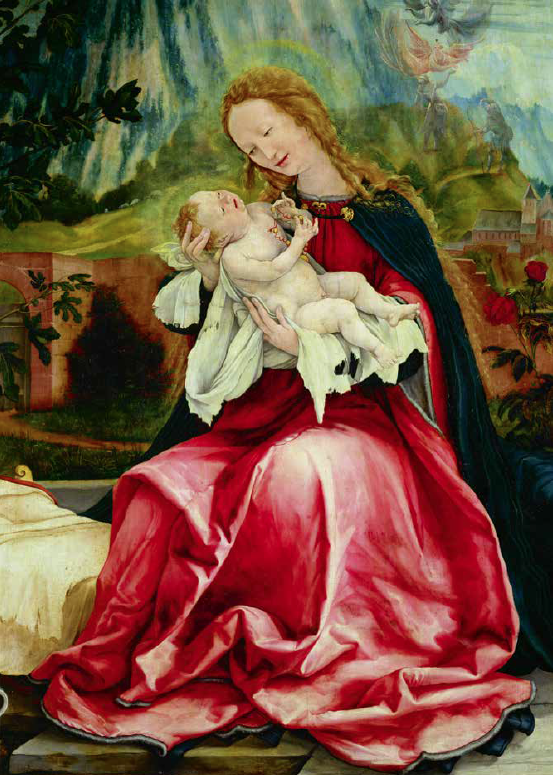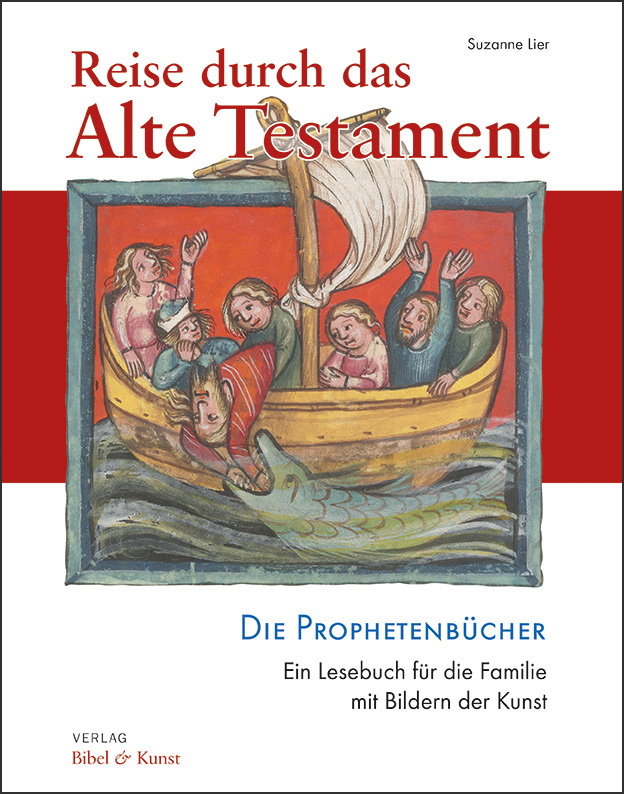December
A Child is Born to us (Isaiah 9:1-6)

For Children
For Christians Jesus is the fulfillment of Isaiah’s announcement of a royal child. But here the little Jesus has already torn his diaper badly! This is a bitter reference to the loincloth that Christ will wear on the cross and to his brutal flogging before. One assumes that the condemned were crucified at that time naked or in their clothes, which were torn by the whipping. Grünewald will have known that!
Matthias Grünewald, Mary with the Child, 1512-16 (detail, Isenheim Altarpiece), Colmar, Musée Unterlinden
Biblical Text
The people who walked in darkness
have seen a great light;
those who lived in a land of deep darkness—
on them light has shined.
You have multiplied exultation;
you have increased its joy;
they rejoice before you
as with joy at the harvest,
as people exult when dividing plunder.
For the yoke of their burden
and the bar across their shoulders,
the rod of their oppressor,
you have broken as on the day of Midian.
For all the boots of the tramping warriors
and all the garments rolled in blood
shall be burned as fuel for the fire.
For a child has been born for us,
a son given to us;
authority rests upon his shoulders,
and he is named
Wonderful Counselor, Mighty God,
Everlasting Father, Prince of Peace.
Great will be his authority,
and there shall be endless peace
for the throne of David and his kingdom.
He will establish and uphold it
with justice and with righteousness
from this time onward and forevermore.
The zeal of the Lord of hosts will do this.

For Adults
These familiar verses, firmly anchored in the Christian liturgy of the Christmas season, begin with a song of thanksgiving (9:1-4) that expresses the joy of those who have escaped the oppression of Assur. This is followed by the announcement of the birth of an heir to the throne and his names, and finally a royal oracle promising eternal peace to the house of David. The throne names (9:5) could be misunderstood as characterizing the royal child. But only the fourth name describes the name bearer. The first three refer to YHWH. Semitic names often consist of small phrases that express God’s activity. They describe the God whose influence the parents hope for their child, as expressed, for example, in the name Hezekiah („YHWH makes strong“). They do not, however, say that the child has divinity, as the classical Christian reading sees it here (Jewish Study Bible 2004, 802). The fourth throne name, „Prince of Peace,“ on the other hand, identifies the new ruler himself and what he is to accomplish with YHWH’s help (Berges/Beuken 2016, 73). It is striking that the title „king“ is avoided. For the authors YHWH alone is king and the hoped-for ruler only deputy of the divine king YHWH. The experiences with the monarchy had been too bad. The future rule should follow an ethical ideal („justice and righteousness,“ 9:6), not power-political calculations.
Picture Credit
Photo: https://upload.wikimedia.org/wikipedia/commons/7/7a/Mathis_Gothart_Gr%C3%BCnewald_043.jpg
Text Credit
New Revised Standard Version, Updated Edition (NRSVUE) © 2021 National Council of Churches of Christ in the United States of America. Used by permission. All rights reserved worldwide.

